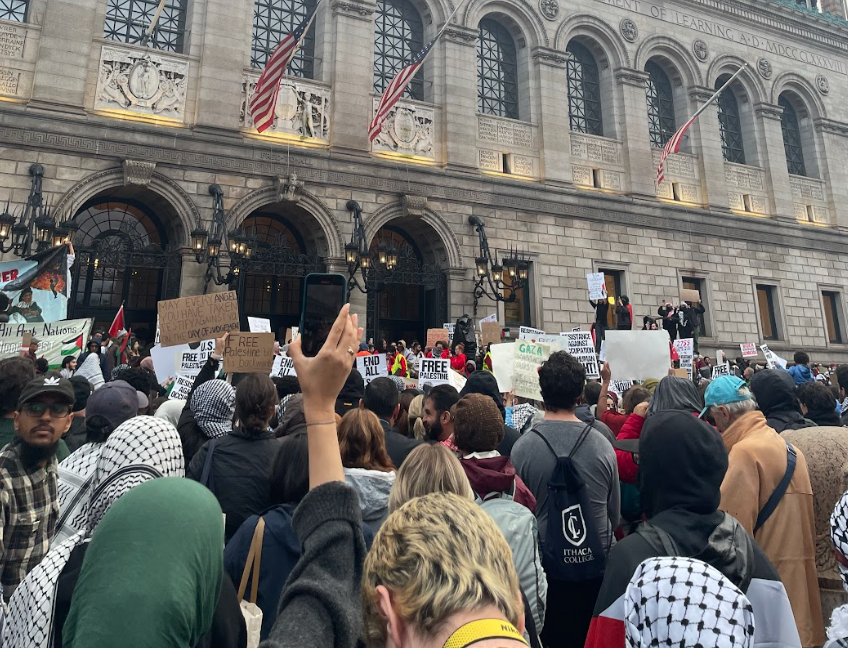During the past several weeks, the controversy raised by the “Sleepwalker” statue on campus has sparked interactions between the College’s administration and the student body. In response to the outcry of student protests, petitions and articles, President Bottomly sent an email to students scheduling a series of meetings to discuss the issue and gauge student concerns and feelings about academic integrity. To discuss issues relevant to the “Sleepwalker,” the College has established a working group, half of which is comprised of student representatives. College Government has issued requests for letters to the College Government President in response to the statue. Several faculty members have opened up discussion in their classrooms. In addition, students also received support email from the Stone Center and the organization Sexual Assault Awareness for Everyone (SAAFE).
Despite the media onslaught it has wrought, the “Sleepwalker” controversy reflects the progress that debate and interaction between students and administration can achieve in a model of representative democracy. This ongoing interaction has certainly not resolved all student concerns, but students have a chance to have their voices heard and are nurturing a movement to realize the changes that they want to see.
Students and administration came together on this issue, partly as a result of a media outpouring that reflected both the students and the College in a negative way. However, students and administration are also working together on other issues, such as fossil fuel divestment. Most of these issues are extremely complex and can only be solved cooperatively. We should continue to foster the cooperation that was ignited by the Sleepwalker in order to empower students with the ability to change the aspects of the College that they believe need improvement.
Many students and organizations have their own individual issues, and the passion of Wellesley students is unmatched in many colleges and universities. But we also hear the frequent muffled complaints about the administration voiced by students with no intention of pursuing action or change. These complaints are often valuable feedback with the potential to make Wellesley a better place. Wellesley’s student body is diverse, and this richness of perspective results in countless insights that few of us act upon. Voicing and acting on these complaints could turn them into ideas for improvements that would benefit present and future students.
There are many ways for students to be involved with the administration, and vice versa. Senate meets every Monday night at 6 p.m., and students can interact there with fellow leaders and with Dean Debra DeMeis. Also, the Student Organizations and Appointments Committee (SOAC) appoints students to be campus representatives on committees with the Board of Trustees and other senior staff. These committee discuss a range of topics, from the College’s budget to admissions to the alcohol policy. Students also have varying degrees of say in these committees, which are listed in their job descriptions on the SOAC website. Finally, among other opportunities for students to voice their opinions, the next Town Hall will be held on Feb. 26 in the Academic Council Room during community time; students can submit questions anonymously online beforehand.
The administration also needs to continue its efforts in making its duties more transparent. On the other hand, students’ active involvement plays a large role in breaking down barriers. Students working with the administration creates a win-win scenario for all of the Wellesley community by giving students leadership experience and fostering improvement.
We all know that Wellesley is not what the press have painted us as in the sensationalization of the Sleepwalker statue. A Wellesley in which students, faculty and administrators debate and work closely to create solutions is the Wellesley we want the media to see.






